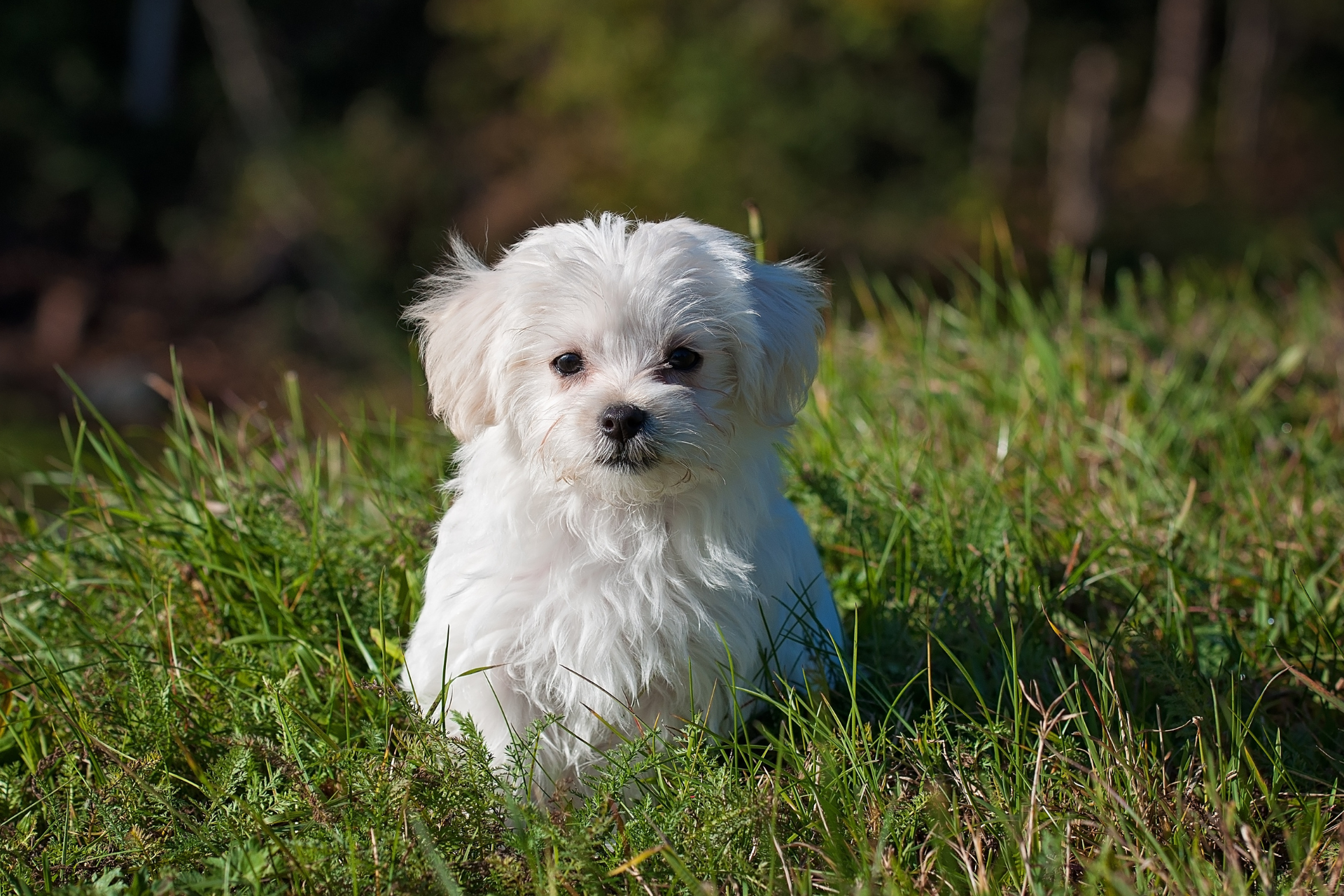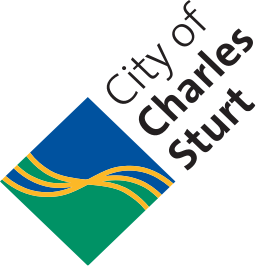
Puppies are babies – they don’t have full control of their bladder for the first few months in life, and some puppies struggle to learn control even up to 6 months of age. Some pick up toilet training relatively quickly, while others take months to work it out.
Larger breeds are also more likely to learn to toilet outside quicker than smaller breeds – perhaps because the consequences are that much bigger (😉) and so we tend to be more consistent.
There really isn’t a ‘quick fix’ for toilet training pups, but you should see progress each week if you and your family are consistent, patient and reinforcing in your training approach.
Reinforce the behaviour you want
- Take them outside (on lead if they get distracted easily) and stand in one spot – that way they’ll get bored of the immediate surrounds and remember they need to pee
- Training tip – encouraging them to sniff the grass by crouching and pointing a spot on the lawn might also help them feel the need to pee quicker
- Put toileting on cue when they are peeing (repeating a cue before anything happens and they don’t know what’s going on will only result in white noise)
- Training tip - Cues like ‘hurry up’ or ‘go potty’ might be less embarrassing to say in public than things like ‘do your business’ or ‘do tinkles’ 😉
- When they finish peeing, let them know they did the right thing by reinforcing them – especially with a high value food reward (like chicken)
- Training tip – the rate at which animals learn is proportionate to how highly they value the consequence (in this case, food). Learning to toilet outside will be more efficient if you reinforce with something the puppy absolutely loves
Puppies eliminate a lot
- You’ll need to take them outside to toilet first thing in the morning, last thing at night, and immediately after eating, drinking, playing, being excited or every few hours in addition to those times (maybe more frequently if they are a small breed)
- Watch them closely so you can tell if they’re about to toilet. Encourage them outside as quickly as possible if you see them turning circles, sniffing, scratching or about to squat. Perhaps weirdly, identifying the ‘wee-walk’ will be your new mission in life
Be consistent
- Keep it up for several accident-free weeks
- Training tip – people make the mistake of relaxing their approach after only a day or two without accidents. This is more likely a coincidence, than long-term learning. Stay the course for several weeks before you start to give more unsupervised freedom around the house
- Just because puppies can sleep overnight for several hours, doesn’t mean they can hold it in for the same during the day
- Leave your puppy in a play pen or small tiled room (like the laundry) where they can have accidents if you can’t supervise them for any length of time. It needs to be big enough to have some space between their bed, water bowl, food and toys, and the toilet area (which may have pads, or turf in a litter tray). You can also set a timer (to remind you to take them out if they’re free-ranging), or sometimes use a crate if your puppy likes them (where they most likely will try to avoid soiling their bedding), for short, unsupervised periods (<1hr)
- Training tip – puppies don’t wait for the adverts on TV. If you catch yourself wondering ‘where is the puppy?’ go and find them immediately instead of waiting for a break. When left to their own devices, puppies will make puppy choices. Silence is not golden. Silence is very, very suspicious 😉
- Set them up for success and ease of supervision – remove access to other areas of the house until you’ve had several accident-free weeks. Then you can slowly build your trust by adding one more room at a time
Other tips and tricks
Puppies are used to sleeping in piles with their mum and/or siblings. The first few nights at your home can be quite the ‘culture’ shock for them. Sometimes, having them sleep in a crate near you (or you sleeping near them), and/or with the radio on low, and/or with a warmed wheatbag wrapped in a towel in their bed can help reduce the chances of them waking overnight (and soiling their sleeping area).
Complimentary therapies like Adaptil (Dog appeasing pheromones) have also been shown to help puppies transition into their new homes. Adaptil (DAP) is a smell that acts like a security blanket for puppies and helps them feel safe. It’s available from most pet stores in Adelaide.
You can teach your puppy to go in a particular spot in the yard. Make sure it’s clearly delineated (with a different substrate like grass next to barkchips). Every time you take them to toilet, take them to that exact spot and reinforce them for going there. This is also handy for cleaning up after them, and ensuring people don’t step in it by accident!
Puppies like clean toilets, just like us! Clean up your yard (or toileting area) every day. A toilet that is full of faeces isn’t inviting for them to go in and you’ll find they prefer to go somewhere else.
We recommend you book into a puppy school, if you haven’t already. A list of qualified, force-free trainers that provide puppy schools in Adelaide can be found on the force-free trainers list on the RSPCA SA website. Puppy schools are specifically for puppies that haven’t had all their vaccinations and are safe spaces for socialisation. They are also a great way to learn more about building the best bond with your puppy and cover basic training (e.g. house training, dealing with mouthing, come when called, polite greetings, settle, resource guarding prevention, appropriate play, body language, loose leash walking and enrichment).
Puppies might regress in their training in very cold or wet weather, or very hot and humid weather. We wouldn’t like to go outside in the middle of the night in winter, get our feet wet, or stand barefoot outside in summer – the same goes for them. Regressions like this usually don’t last long, but can be upsetting. Be patient with them, and try to find a work around short term if you can. Or, better yet, ensure their toileting area is relatively protected from the elements to start.
What do you do if they do make a mistake?
You don’t need to punish your puppy for making a mistake. Suppressing unwanted behaviour isn’t the same as encouraging the appropriate behaviour with positive reinforcement, and punishment isn’t at all necessary for babies learning about life. Especially in the case of house training. If you punish your puppy for toileting inside, you might find they start hiding away from you to toilet inside the house and out in the yard (toileting is such a natural behaviour, they tend to associate toileting in front of you with the punishment instead toileting inside with the punishment).
Clean up the mess inside without making any fuss. You might purchase a cleaner specific for urine from a pet-store – like ‘Urine-Off’. Anecdotally, they help remove all the other pheromones or smells that we don’t notice which helps stop a puppy from choosing to go back there. Normal household cleaning products make the area smell nice to us again, but don’t necessarily remove the pheromones.
This is also a gentle reminder that your puppy needs to be registered with council and microchipped by 12 weeks of age (or within 2 weeks of moving to your home), and desexed by 6 months of age.
At the start, puppy training can feel like the biggest challenge, and it is hard (and sometimes exhausting or frustrating). But it can also be done relatively quickly if you and your family are patient, consistent and always on the look out to reinforce the right behaviour.
Send us a pic of your puppy on our Facebook page - we can’t wait to meet them!
